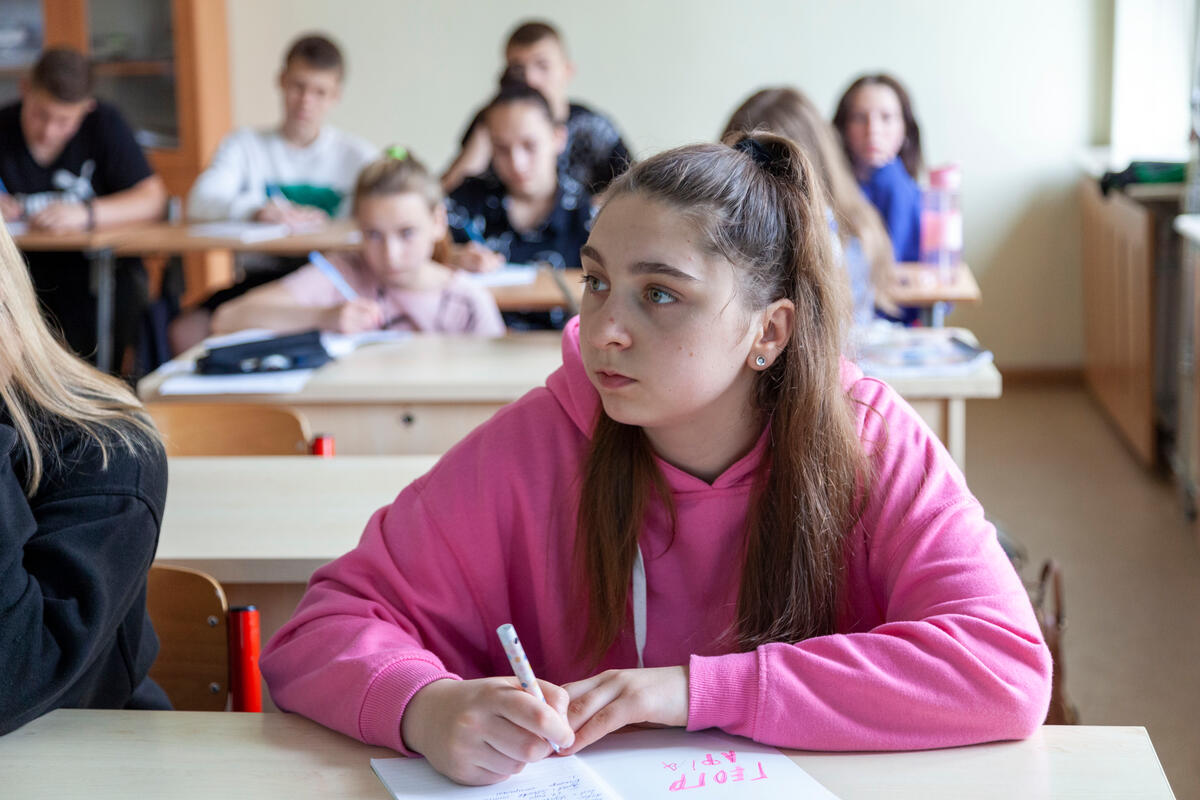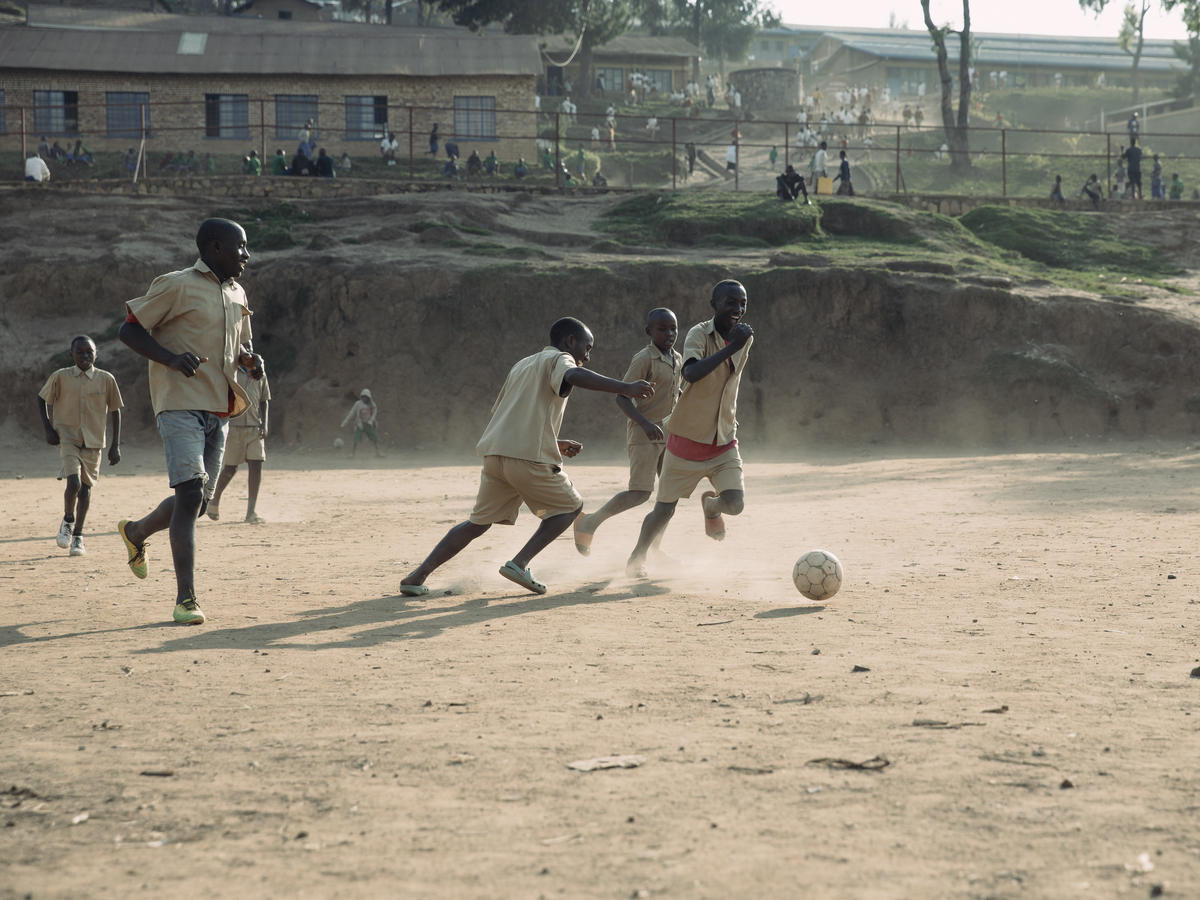Magic with a message for refugee children in Iran
Magic with a message for refugee children in Iran

JAHROM, Iran, May 5 (UNHCR) - "Can a balloon and a needle be friends?" Tom Verner asked a group of Iraqi refugee children in Dastgheib camp in Jahrom city, southern Iran.
"No!" they responded in unison. As they held their breath, he poked a huge needle into the balloon with no audible pop. Withdrawing the needle gently, he said, "This could be India and Pakistan, Israel and Palestine, Iraq and America. We should live in peace, or the world would be like this," and burst the balloon with the same needle.
The duo behind Magicians Without Borders, Verner and his wife Janet Fredericks, travelled through the refugee camps of Iran recently to entertain and educate more than 2,000 Iraqi and Afghan children.
A visual artist, Fredericks mimed the role of La Fleur the clown, shaking hands and using scarves and bubbles to amuse them. Verner performed tricks like lengthening ropes, making scarves vanish, linking and de-linking steel rings.
The youngsters were enraptured. "This is the first time the children have sat so politely and quietly without having to be controlled, as they usually turn very active," said Karamat Allah Pahlevani, the director of Dastgheib camp. "This is a sign of how interesting they found the show and how important it is to have such programmes for these children who are deprived and do not have the means to have fun in life."
Magic is a worldwide language that everyone understands, said Verner, explaining how he communicated with the young Afghans and Iraqis, few of whom speak English. He selected some children from the audience to assist him, and made sponge balls multiply in their hands.
"Depending on what I want to teach the children, I use different words while maybe illustrating the same thing," he said. The balloon and needle analogy, for example, has been used to explain to children in Africa about the stigma surrounding HIV/AIDS. In Iran, the same method was used to teach children uprooted by war in their countries about peace, something they know little about.
Iran is the latest among 17 countries where Magicians Without Borders has performed in refugee camps and orphanages. Other countries include Ethiopia, Haiti, Bosnia, Croatia, China, Sudan and El Salvador.
Verner first started his performances in the camps of Kosovo and Macedonia in 1991. Inspired by its impact on children - "Magic in some ways helps awaken the hopes and dreams of refugees which have died during the years and years of living in camps" - the psychology teacher took a year off to focus on it. He is now in his seventh year of leave.
His non-profit organization is funded by family, friends and people who believe in bringing smiles and laughter to refugee children. Whenever approached, the UN refugee agency has provided him with logistical support and paid for a part of his travel expenses.
"Following our visits to refugee camps worldwide, I have come to admire UNHCR and the humanitarian crises they take on," said Verner. He and Fredricks were also very impressed by the warm welcome they received in Iran and the country's hospitality towards refugees, referring to the more than 900,000 registered Afghan refugees and some 54,000 Iraqi refugees in Iran today.
The most common question among people touched by Magicians Without Borders is: When are you coming back?
"These children have no fun besides sports," said Zeinab Shahriari, a teacher in Dalaki camp for Afghan refugees in Bushehr, southern Iran. "These kinds of performances are very effective in boosting the children's morale and will help them become familiar with another culture. Therefore it would be great if they could be repeated more often."
Lal Mohammad Bakhtiari, a 12-year-old in Dalaki camp, said simply, "We wish health and happiness for the magicians who came to our camp and made us happy."
Fredericks said they planned to continue performing "until the day we are physically unable to do so."
By Dina Faramarzi in Jahrom, Iran








